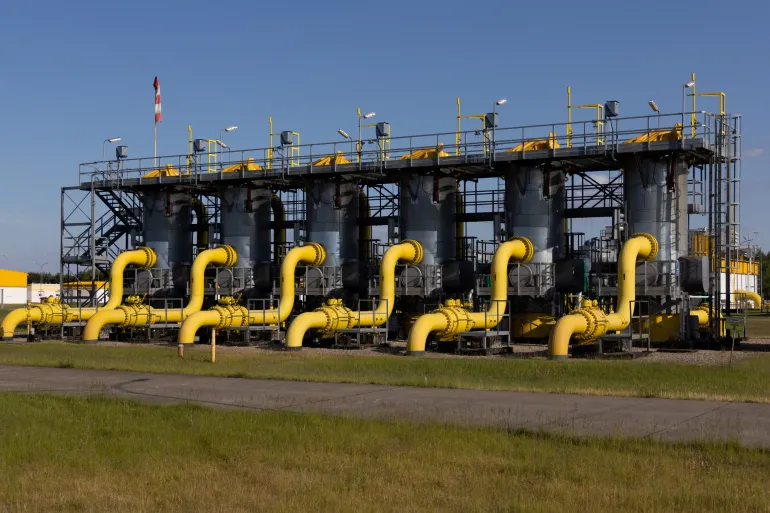European Union nations’ energy ministers have agreed on a gas price cap, after weeks of talks on the emergency measure that has split opinion across the bloc as it seeks to tame the energy crisis.
The Czech presidency of the European Council, which represents member countries, said a deal was reached in Brussels on Monday.
The cap is the 27-country EU’s latest attempt to lower high gas prices that have inflated citizens’ energy bills and driven record-high inflation this year after Russia cut off most of its gas deliveries to Europe.
EU officials and a document seen by Reuters news agency revealed that ministers agreed to trigger a cap if prices exceed 180 euros ($191) per megawatt hour for three days on the Dutch Title Transfer Facility (TTF) gas hub’s front-month contract, which serves as the European benchmark.
The cap can be triggered starting from February 15, 2023.
Once implemented, the price cap would prevent trades being done on the front-month to front-year TTF contracts at a price more than 35 euros ($37)/MWh above a reference level based on existing liquefied natural gas (LNG) price assessments, two EU officials said.
Following the announcement of the deal, Kremlin spokesman Dmitry Peskov said that the decision was an attack on market pricing, according to Russia’s Interfax news agency.
“This is a violation of the market price-setting, an infringement on market processes, any reference to a [price] cap is unacceptable,” Peskov was cited as saying.
‘Energy security’
EU nations have stuck together through nine rounds of sanctions against Russia over the war in Ukraine and energy-saving measures to avoid shortages of the fuel used to generate electricity, heat homes and power factories.
But they were unable until Monday to close a deal on setting the complicated price cap for natural gas.
Germany voted to support the deal, despite having raised concerns about the policy’s effect on Europe’s ability to attract gas supplies in price-competitive global markets, three EU officials said.
“Nobody in Germany is against low gas prices, but we know we have to be very careful not to want to do something good and trigger something bad,” German Economy Minister Robert Habeck said on Monday, ahead of the meeting.
Three officials said the Netherlands and Austria abstained. Both had resisted the cap during negotiations, fearing it could disrupt Europe’s energy markets and compromise Europe’s energy security.
The deal follows months of debate on the idea and two previous emergency meetings that failed to clinch an agreement among countries that disagreed on whether a price cap would help or hinder Europe’s attempts to contain the energy crisis.
Roughly 15 countries, including Belgium, Greece and Poland, had demanded a cap below 200 euros ($212)/MWh – far lower than the 275 euros ($292)/MWh limit originally proposed by the European Commission last month.
“The fact that the countries who weren’t sure about it, the Germans specifically, have voted in favour of it, shows you just how much these EU leaders … wanted a deal,” Al Jazeera’s Dominic Kane, reporting from Berlin, said.
Belgian Energy Minister Tinne Van der Straeten said on Monday: “This is about our energy future. It’s about energy security. It’s about how we have affordable prices, that we avoid de-industrialisation,”
Initially, the cap will not apply to private gas trades outside energy exchanges, although this may be reviewed once it is in force.

